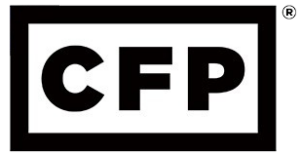With the world around us getting more and more competitive, a lot of parents are exploring the option of private schooling. While the options seem endless, it’s almost always for affluent families with healthy incomes or net worth. But for the masses, the issue has always been getting financial aid for private schools.
Private schools offer smaller classrooms, specialized programs, and holistic education which translates to greater success in life. Many families find themselves seeking information and resources on financial aid to bridge the gap between their desire for a private education and their financial realities. This blog post will provide you with a comprehensive guide for getting financial aid for private schools.
How to Get Financial Aid For Private Schools?
Schools award financial aid based on either need or merit. The need for financial aid is defined as the gap between the annual cost of attending a particular school and the amount a family can be expected to contribute. Many schools use the School and Student Service for Financial Aid (SSS) to determine eligibility for need-based scholarships.

To determine your family’s eligibility, you will have to fill out an application for financial aid. Financial aid forms can generally be obtained from the school’s financial aid officer. Aid applications ask for information concerning the parents’ finances.
This includes information such as the family’s net income and assets, number of dependents, age of parents, and the number of children attending tuition-charging schools and colleges. In addition, many schools request the most recently filed federal income tax return.
The SSS analyzes this data, using a formula that takes into account food, clothing, and shelter costs for a household. On the basis of the remaining discretionary income, it will recommend an amount that your family should be able to afford for educational expenses.
Within the limit of budgets—and according to individual financial aid policies—the schools will make final judgments on how much, if any, aid will be given. In most cases, applying for financial aid does not affect admission decisions, but early application is advised since scholarship funds are limited.
My Personal Experience Regarding Financial Aid
In my personal experience of filling out needs-based applications with clients, I’ve noticed the opportunity to further explain your situation and “make your case.” If your income or assets are artificially inflated due to estate planning with aging parents, career changes, recent illness, etc., you’ll certainly be able to explain this to ensure the most accurate picture of your finances is presented. Stating your reasons for why private education is so important for your child doesn’t hurt either.
Financial aid is also available in forms other than scholarships. Of the approximately 1,100 schools belonging to the National Association of Independent Schools (NAIS), many have loan programs for families with modest incomes, and some also offer low-interest loans to those with incomes between $20,000 and $80,000. Many more have installment plans that can ease the tuition bite, and some schools also offer campus employment as part of an aid package. In case you want to have a financial discussion with your partner regarding your child’s education, you may read this blog post here.
If financial aid is a major consideration for you in selecting schools, examine school figures detailing what percentage of students receive aid and the total amount given in scholarships or loans. Often, the older and more prestigious schools are heavily endowed and have the means to offer many scholarships. Religious schools also tend to offer generous aid to ensure full enrollment and to accommodate active parishioners.
Other schools have special scholarship endowments earmarked for students talented in the fine arts or athletics. Look for these if your child stands out in these areas. If you’d like more information on funding for private school education, visit the NAIS website at www.nais.org.
Adapted from FMeX with permission.





This Post Has One Comment
Pingback: Back to School Planning is More Expensive This Year - North Andover Financial Planner | Powwow, LLC